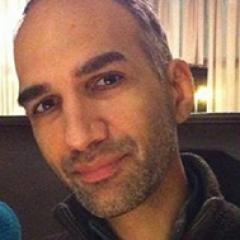Synopsis:
Johann Georg Hamann’s conviction that the world and history constitute the means and materials of a communicative act of a personal God is presented as a “hermeneutics of the Cross”. The presentation explores the potential influence of Hamann’s provocative writings on developments in hermeneutics in the late-eighteenth- and early-nineteenth-century German context, especially in the works of Immanuel Kant and Friedrich Schleiermacher. The central motif and principal motivation behind Hamann’s esoteric writings in personal addresses to his friends and rivals is a turn to language to force his reader to consider the relatedness between their reason, language, and tradition. The pantheism controversy of the 1780s provides a productive point at which to commence the discussion of Hamann, Kant, and Schleiermacher, given their shared interest in the central issues of the dispute. This dispute about the proper use of reason and faith in matters of religion was set in motion by Hamann’s friend and fellow critic, Friedrich Jacobi’s publication of his letters to Moses Mendelssohn. Included on the work’s title page as a jibe at the seeming unworldly purity of Enlightenment philosophy was a borrowed quotation from Hamann’s metaschematic adaptation of Archimedes’ famous boast, “Give me a place to stand”.
Speaker:
 Mr Sean Coker is in his third and final year of PhD in the School of Languages and Cultures under the principal supervision of Professor Tim Mehigan and associate supervision of Dr Stephan Atzert. Sean's PhD project, “J.G. Hamann’s Word: A Hermeneutist of the Cross,” builds upon his undergraduate honours thesis, “Take Up Thy Pen and Talk”: J.G. Hamann’s Word,” completed at the University of Southern Queensland. At USQ, he received the Faculty Medal, University Medal, and First Class Honours, graduating with a Bachelor of Arts, majoring in History. He plans to complete his PhD within the next twelve months and aim to establish a career in academia in the future.
Mr Sean Coker is in his third and final year of PhD in the School of Languages and Cultures under the principal supervision of Professor Tim Mehigan and associate supervision of Dr Stephan Atzert. Sean's PhD project, “J.G. Hamann’s Word: A Hermeneutist of the Cross,” builds upon his undergraduate honours thesis, “Take Up Thy Pen and Talk”: J.G. Hamann’s Word,” completed at the University of Southern Queensland. At USQ, he received the Faculty Medal, University Medal, and First Class Honours, graduating with a Bachelor of Arts, majoring in History. He plans to complete his PhD within the next twelve months and aim to establish a career in academia in the future.
About Studies in Culture Events
Through the scholarly analysis of many different kinds of cultural products, texts and phenomena, Studies in Culture brings together researchers who seek to understand how the world is understood differently by people coming from different cultural and linguistic backgrounds. Researchers in this cluster work on literature, film, music, theatre, the visual arts, intangible heritage, testimonies and historical narratives.
Research in Studies in Culture within the School centres around four broad sub-themes of Heritage, memory and trauma studies; Intellectual and cultural history; Literature; and Film and visual cultures.
To view more on the research and interests of the Studies in Culture cluster, please click here.

